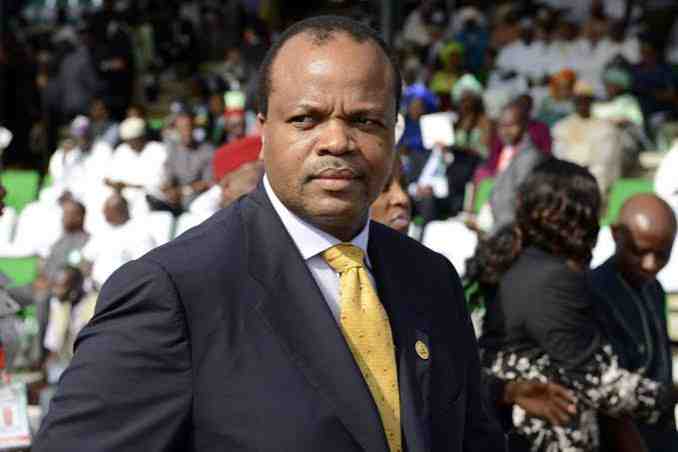Last updated on September 11th, 2021 at 07:56 am
The Kingdom of Eswatini is witnessing massive pro-democracy protests in recent weeks against the long-running rule of King Mswati III. Protesters have been demanding political reforms to facilitate the democratic election of a prime minister in the southern African nation.
However, ignoring the demands of pro-democracy protesters, King Mswati III has announced a new prime minister to take over the Kingdom’s administration.
King announces new PM
Addressing the crowds gathered at the Ludzidzini Royal Palace on Friday, King Mswati III named former chief executive officer of Eswatini’s public service pension fund Cleopas Dlamini as the new prime minister of Eswatini. Dlamini would be replacing acting PM Themba Masuku, who was appointed to the post after the death of Ambrose Dlamini due to COVID-19 in December 2020.
“I have prayed that I have a man that would bring the country to normalcy, restore the country and resuscitate the economy. The man that I announce to the nation is Cleopas Dlamini,” Mswati said.
Notably, King Mswati III is Africa’s last absolute monarchy who has been ruling the Kingdom for almost 35 years now. With political parties banned in the country, the King has the absolute power to choose the prime minister, his cabinet, and at least one-third of the members of parliament, among other leading positions in the government.
Pro-democracy protests grow
While the King was addressing the masses, demonstrations erupted across several parts of the nation. Swazis thronged to the streets, calling for limiting the constitutional powers of the King and the right to appoint a new prime minister. However, the government launched a crackdown on protesting demonstrators which saw security forces using live ammunition and force to disperse the crowd in the city.
As per media reports, police fired tear gas and used water cannons to control the protesters. At least 40 people were killed and many suffered injuries during the crackdown. In his Friday’s address, the king regarded the protestors as “satanic”.
While Swazis have petitioned to allow elections to take place in the country, the authorities issued a royal decree suspending people from filing appeals to parliamentarians. The government has maintained that any amendments to the constitution are needed to go through the parliament, which calls for the King’s approval as the final step.
Significantly, analysts have stated that pro-democracy sentiments will continue to grow in Eswatini despite the King’s relentless efforts to put an end to dissent among the public. World governments including the United States have also called for dialogue and measures to maintain respect for human rights in the Kingdom.
Meanwhile, the country has been struggling to overcome the deteriorating repercussions of the COVID-19 pandemic. According to the World Bank, about two-third of Eswatini’s 1.2 million population are living below the poverty line.

